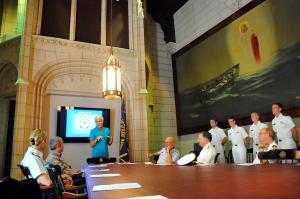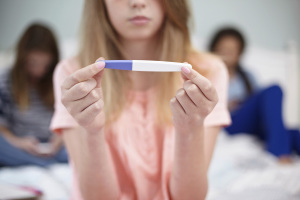Supreme Court Vote Forces Obama Admin to Craft New Birth Control Option for Religious Nonprofits
 2 photos(Photo: REUTERS/Gary Cameron)The exterior of the U.S. Supreme Court is seen in Washington March 5, 2014. U.S. Supreme Court justices on Wednesday appeared to look for a compromise that would enable them to avoid overruling a 26-year-old precedent that made it easier for plaintiffs to negotiate large class action settlements.
2 photos(Photo: REUTERS/Gary Cameron)The exterior of the U.S. Supreme Court is seen in Washington March 5, 2014. U.S. Supreme Court justices on Wednesday appeared to look for a compromise that would enable them to avoid overruling a 26-year-old precedent that made it easier for plaintiffs to negotiate large class action settlements.The Obama administration is devising a plan that will allow religious nonprofits that object to paying for contraceptives and abortifacients in their healthcare plans and also object to filling out a form that allows a third-party to cover these products and services, to opt out.
White House officials said Tuesday that "they're still developing the alternative and couldn't provide any details about what it would entail," according to The Associated Press. "The administration said the new alternative won't involve shifting the costs to employees."
This announcement comes just weeks after the United States Supreme Court ruled in a 6-3 vote that Wheaton College in Illinois is not required to cover emergency contraceptives it believes can lead to the early termination of a pregnancy. The vote gives the college temporary relief from the HHS' birth control mandate (while its case is pending), which it said violates the institution's religious beliefs.
During this time, the college cannot be fined by the IRS for opting to not cover emergency contraceptives, such as Plan B and Ella One, which can be taken up to 72 hours and five days after unprotected sex, respectively.
While the HHS' contraceptive mandate gives Wheaton College the option to not provide direct coverage for birth control by completing an EBSA Form 700 that would enable a third party to cover birth control, the college has argued that submitting the form would still make it complicit in providing these products, for which it has religious objections.
Thus, Wheaton College has declined to use the form because it forces a third party to provide services that it opposes, on religious grounds, which it believes is a violation of the Religious Freedom Restoration Act of 1993 that was signed into law by Democratic President Bill Clinton.
The Administration told the AP that the federal government "will release new regulations within one month that establish an alternative way for religious groups to indicate their objection, without filling out the form. Form 700 will remain an option for groups willing to use it."
In her 16-page dissenting opinion for the three female justices on the Court who sided against Wheaton College's request for temporary relief under the claim that the HHS mandate violates RFRA, Justice Sonia Sotomayor wrote: "Rather than availing itself of this simple accommodation, Wheaton filed suit, asserting that completing the form and submitting it to its third-party administrator would make it complicit in the provision of contraceptive coverage, in violation of its religious beliefs."
She continued, "On that basis, it sought a preliminary injunction, claiming that the law and regulations at issue violate RFRA, which provides that the government may not 'substantially burden a person's exercise of religion' unless the application of that burden 'is the least restrictive means of furthering [a] compelling governmental interest.'"
"Wheaton is 'religiously opposed to emergency contraceptives because they may act by killing a human embryo,'" Sotomayor added. "And it 'believes that authorizing its [third-party administrator] to provide these drugs in [its] place makes it complicit in grave moral evil.'"
Sotomayor further asserts that despite its religious convictions, Wheaton College is wrong.
"Wheaton is mistaken — not as a matter of religious faith, in which it is undoubtedly sincere, but as a matter of law: Not every sincerely felt 'burden' is a 'substantial' one, and it is for courts, not litigants, to identify which are," she said.
"Let me be absolutely clear: I do not doubt that Wheaton genuinely believes that signing the self-certification form is contrary to its religious beliefs. But thinking one's religious beliefs are substantially burdened — no matter how sincere or genuine that belief may be — does not make it so."





























